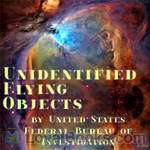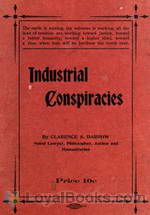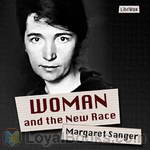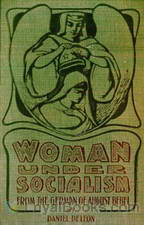|
Books Should Be Free Loyal Books Free Public Domain Audiobooks & eBook Downloads |
|
|
Books Should Be Free Loyal Books Free Public Domain Audiobooks & eBook Downloads |
|
Books on Politics |
|---|
|
Book type:
Sort by:
View by:
|
By: Ulysses S. Grant (1822-1885) | |
|---|---|
 State of the Union Address
State of the Union Address
| |
By: M. François Guizot (1787-1874) | |
|---|---|
 Memoirs To Illustrate The History Of My Time Volume 1
Memoirs To Illustrate The History Of My Time Volume 1
| |
By: United States Federal Bureau of Investigation | |
|---|---|
 Unidentified Flying Objects
Unidentified Flying Objects
Through the U.S. Freedom of Information Act (FOIA) this series of communications has been de-classified and made public. Most names have been omitted, however much information of the sightings of UFOs in 1947 can be gleaned from these communications which were primarily between the FBI and other U.S. Government and military organizations. | |
By: Benjamin Disraeli (1804-1881) | |
|---|---|
 Lord George Bentinck A Political Biography
Lord George Bentinck A Political Biography
| |
By: Annie Wood Besant (1847-1933) | |
|---|---|
 The Case for India
The Case for India
| |
By: John Addington Symonds (1840-1893) | |
|---|---|
 A Problem in Modern Ethics
A Problem in Modern Ethics
“Society lies under the spell of ancient terrorism and coagulated errors. Science is either wilfully hypocritical or radically misinformed.” John Addington Symonds struck many an heroic note in this courageous (albeit anonymously circulated) essay. He is a worthy Virgil guiding the reader through the Inferno of suffering which emerging medico-legal definitions of the sexually deviant were prepared to inflict on his century and on the one which followed. Symonds pleads for sane human values in... | |
By: Percy Fitzpatrick (1862-1931) | |
|---|---|
 The Transvaal from Within A Private Record of Public Affairs
The Transvaal from Within A Private Record of Public Affairs
| |
By: Johanna Brandt (1876-1964) | |
|---|---|
 The Petticoat Commando
The Petticoat Commando
In introducing the English version of this book I venture to bespeak a welcome for it, not only for the light which it throws on some little-known incidents of the South African war, but also because of the keen personal interest of the events recorded. It is more than a history. It is a dramatic picture of the hopes and fears, the devotion and bitterness with which some patriotic women in Pretoria watched and, as far as they could, took part in the war which was slowly drawing to its conclusion on the veld outside... | |
By: Clarence Darrow (1857-1938) | |
|---|---|
 Industrial Conspiracies
Industrial Conspiracies
| |
By: Walter Bagehot (1826-1877) | |
|---|---|
 Physics and Politics, or, Thoughts on the application of the principles of "natural selection" and "inheritance" to political society
Physics and Politics, or, Thoughts on the application of the principles of "natural selection" and "inheritance" to political society
| |
By: John R. Lynch (1847-1939) | |
|---|---|
 The Facts of Reconstruction
The Facts of Reconstruction
After the American Civil War, John R. Lynch, who had been a slave in Mississippi, began his political career in 1869 by first becoming Justice of the Peace, and then Mississippi State Representative. He was only 26 when he was elected to the US Congress in 1873. There, he continued to be an activist, introducing many bills and arguing on their behalf. Perhaps his greatest effort was in the long debate supporting the Civil Rights Act of 1875 to ban discrimination in public accommodations.In 1884 Lynch was the first African American nominated after a moving speech by Theodore Roosevelt to the position of Temporary Chairman of the Republican National Convention in Chicago, Illinois... | |
By: John Morley (1838-1923) | |
|---|---|
 The Life of William Ewart Gladstone, Vol. 1 (of 3) 1809-1859
The Life of William Ewart Gladstone, Vol. 1 (of 3) 1809-1859
| |
By: Walter Lippmann (1889-1974) | |
|---|---|
 Public Opinion
Public Opinion
Public Opinion (1922), by Walter Lippman, is a critical assessment of functional democratic government, especially the irrational, and often self-serving, social perceptions that influence individual behavior, and prevent optimal societal cohesion. (Introduction by author) | |
 Preface to Politics
Preface to Politics
This is the first book in the bibliography of Walter Lippmann, written three years after emerging from Harvard where he studied under the pragmatists Santayana and James. Although the work is a century old, the reader of today may still find in it, with its focus on practical human needs, a refreshing view towards the fundamental purpose (and persistent flaws) of politics, and indeed government itself, just as relevant and meaningful today as when it was written. | |
By: Pierre-Joseph Proudhon (1809-1865) | |
|---|---|
 What is Property? An Inquiry into the Principle of Right and of Government
What is Property? An Inquiry into the Principle of Right and of Government
What Is Property?: or, An Inquiry into the Principle of Right and of Government (French: Qu'est-ce que la propriété ? ou Recherche sur le principe du Droit et du Gouvernment) is an influential work of nonfiction on the concept of property and its relation to anarchist philosophy by the French anarchist and mutualist Pierre-Joseph Proudhon, first published in 1840. In the book, Proudhon most famously declared that “property is theft”. Proudhon believed that the common conception of property conflated two distinct components which, once identified, demonstrated the difference between property used to further tyranny and property used to protect liberty... | |
By: Frederick Jackson Turner (1861-1932) | |
|---|---|
 Rise of the New West, 1819-1829
Rise of the New West, 1819-1829
| |
By: Margaret Sanger (1879-1966) | |
|---|---|
 Woman and the New Race
Woman and the New Race
Margaret Sanger was an American sex educator and nurse who became one of the leading birth control activists of her time, having at one point, even served jail time for importing birth control pills, then illegal, into the United States. Woman and the New Race is her treatise on how the control of population size would not only free women from the bondage of forced motherhood, but would elevate all of society. The original fight for birth control was closely tied to the labor movement as well as the Eugenics movement, and her book provides fascinating insight to a mostly-forgotten turbulent battle recently fought in American history. | |
By: Hippolyte Taine (1828-1893) | |
|---|---|
 The Ancient Regime
The Ancient Regime
| |
 The Modern Regime, Volume 1
The Modern Regime, Volume 1
| |
 The Modern Regime, Volume 2
The Modern Regime, Volume 2
| |
By: Elizabeth Cady Stanton (1815-1902) | |
|---|---|
 History of Woman Suffrage, Volume I
History of Woman Suffrage, Volume I
| |
By: Queen of Great Britain Victoria (1819-1901) | |
|---|---|
 The Letters of Queen Victoria : A Selection from Her Majesty's Correspondence between the Years 1837 and 1861 Volume 1, 1837-1843
The Letters of Queen Victoria : A Selection from Her Majesty's Correspondence between the Years 1837 and 1861 Volume 1, 1837-1843
| |
By: August Bebel (1840-1913) | |
|---|---|
 Woman under socialism
Woman under socialism
| |
By: Imbert de Saint-Amand (1834-1900) | |
|---|---|
 Marie Antoinette and the Downfall of Royalty
Marie Antoinette and the Downfall of Royalty
Paris in 1792 is no longer what it was in 1789. In 1789, the old French society was still brilliant. The past endured beside the present. Neither names nor escutcheons, neither liveries nor places at court, had been suppressed. The aristocracy and the Revolution lived face to face. In 1792, the scene has changed."France was now on the verge of the Reign of Terror (la Terreur), the violent years following the Revolution, and this book chronicles the terrible period of French history which culminated in the proclamation: "Royalty is abolished in France... | |
By: Thomas W. Rolleston (1857-1920) | |
|---|---|
 Ireland and Poland A Comparison
Ireland and Poland A Comparison
| |
By: John Evelyn (1620-1706) | |
|---|---|
 An Apologie for the Royal Party (1659); and A Panegyric to Charles the Second (1661)
An Apologie for the Royal Party (1659); and A Panegyric to Charles the Second (1661)
| |